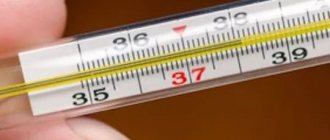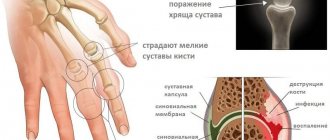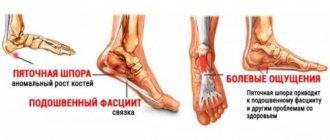Many people have probably had to deal with a situation where their voice suddenly disappeared or became hoarse. Besides the fact that this in itself is not very pleasant and causes a lot of difficulties associated with work and even basic communication, hoarseness can be a symptom of quite serious health problems. The voice becomes hoarse either when the ligaments that generate it thicken and become uneven, or when some obstacles arise in the path of the sound wave, creating interference. This may be due to a number of different reasons.
Why does your voice sometimes disappear when you have a cold or ARVI?
The vagus nerve, which extends from the medulla oblongata, is responsible for the functions of the vocal apparatus. After a cold or ARVI, swelling of the mucous membranes of the larynx often occurs, as a result of which their ability to create vibration is lost. Hoarseness and hoarseness appear.
If your voice has disappeared due to a cold, a number of procedures that can be performed at home will help restore it. However, alternative treatment in combination with taking medications provides the maximum effect and allows you to get rid of aphonia in the shortest possible time.
Why does an adult suddenly lose his voice from time to time?
By studying all the symptoms in detail, you can more accurately determine the cause of aphonia.
Most often this is caused by the following diseases:
- Laryngitis. This is an inflammation of the larynx, which can be of a non-infectious nature: hypothermia, excessive strain on the vocal cords, for example, in singers or teachers. Laryngitis is also caused by infectious agents, for example, influenza viruses, measles, and diphtheria. Other symptoms of laryngitis are high fever, headache, weakness, apathy, and fatigue.
Reasons why your voice may be lost - Disorders of the innervation of the larynx. This type of disorder includes paralysis: myopathic and neuropathic. The first are associated with damage to the muscle fibers themselves; they develop when damaged by microbes and their toxins or after hemorrhages caused by prolonged voice strain in unfavorable conditions (dust, gas pollution). The second group of paralysis is associated with organic damage to the vagus nerve and its branches, which can be caused by injury, infection, or compression by a tumor. With this pathology, patients will also complain of difficulty swallowing, shortness of breath, and wheezing.
- Functional paralysis of the larynx. This category of paralysis has a central development mechanism: an imbalance between the processes of excitation and inhibition in the cerebral cortex.
- Endocrine disorders. Diseases of the thyroid gland (hyper- and hypothyroidism) can cause local circulatory disorders, which leads to swelling of the vocal folds. Also entails aphonia and dysfunction of the adrenal cortex. For such diseases, symptomatic treatment will be ineffective, so it is necessary, first of all, to cure the underlying pathology.
- Tumor processes. Benign and malignant tumors of the larynx in the initial stages may not manifest themselves clinically. But as they progress, they begin to significantly compress adjacent organs, tissues and blood vessels, which leads to ischemia and edema.
- Other reasons. Aphonia can also be a consequence of the influence of the following factors: stress disorders;
- mental disorders;
- long-term smoking;
- mechanical damage to the vocal cords;
- eating spicy food.
What factors lead to voice loss?
A person can lose their voice for many reasons. Most often, this happens in the following cases:
- Drinking plenty of cold or, on the contrary, hot drinks: as a result of this, inflammatory processes begin in the larynx.
- Colds, ARVI and, as complications, laryngitis, bronchitis, tracheitis. Soreness, dry cough, and hoarseness appear.
- Many people lose their voice when they have a cold, but in most cases this phenomenon occurs in teachers, singers, actors, and speakers: the vocal cords are always under tension, and the disease aggravates the process.
- Regular consumption of cold carbonated drinks.
Try to eliminate all possible risks for yourself: this will avoid loss of voice and the occurrence of severe complications after ENT diseases.
Causes of aphonia
In order to understand why the voice may disappear, you need to know about the physiological processes of its formation. Voice is the sound vibrations that occur when air moves through closed vocal folds. When a person is silent, there is a small gap between the folds. For sound to be produced, the folds must be compressed. If this does not happen, we can talk about the manifestation of aphonia.
The ability to speak is affected by several pathological processes at once. The most harmless reason is colds, which, as a rule, do not cause much harm to the vocal cords. However, aphonia can also occur with other pathologies. Let's look at the main ones.
- Laryngitis in acute form (the cause of the inflammatory process of the larynx can be either simple hypothermia of the body or the action of harmful microorganisms. Depending on the causative agent of the disease, there are several types of laryngitis, which only an ear, nose and throat doctor . However, all of them can cause such as, for example, hoarseness of voice, and its complete loss - in especially advanced cases).
- Neck injuries (if this area is damaged, the vocal folds may be simultaneously injured, resulting in aphonia).
- Endocrine diseases (here we are talking primarily about the thyroid gland; the possibility of aphonia is due to the close location of the gland to the vocal apparatus).
- Foreign objects in the larynx area.
- Stress (against the background of emotional upheaval, hoarseness, hoarseness or complete loss of voice is a very common phenomenon).
- Excessive tension on the vocal cords (this is especially true for people in voice-speech professions, such as actors, singers, lecturers, and announcers).
- Neoplasms in the larynx (both malignant and benign tumors).
- Adolescence (this is the most harmless reason, since the process of voice change during puberty is in most cases the norm).
All of the above reasons for voice loss can manifest themselves either individually or in combination. The second option significantly complicates both the diagnosis and the course of the disease. At the same time, other unpleasant symptoms may occur: general weakness, pain and sore throat, loss of voice, fever.
How to restore your voice when you have a cold at home?
One of the main conditions for quickly getting rid of such a complication is proper nutrition. Firstly, you need warm drinks, and in large quantities. Irritated ligaments require a lot of moisture. Tea, fruit drink, compote, jelly, milk - the choice is quite wide.
If there is no fever and you do not take medications internally, mulled wine will help. It is better to prepare it before bedtime. Pour red wine into a container, add a little cinnamon; 1-2 cloves; coriander, nutmeg, dried ginger on the tip of a knife and heat to 80 degrees. The drink should not boil: in this case, all beneficial properties are lost. Strain it, drink 150 g of mulled wine, wrap your throat and go to bed.
The patient's diet must include broths, lean meat without seasoning, fruits, vegetables, cereals, yoghurts and other dairy products. It is prohibited to consume smoked meats, canned vegetables, coffee and soda. It is useful to add garlic and onions to prepared dishes.
Diagnostics
After identifying the main symptoms, it is necessary to conduct a more accurate diagnosis.
If a tumor process is suspected, the following studies are indicated:
- radiography of the head and neck;
- Ultrasound of the thyroid gland;
- blood test for tumor markers.
If a tumor is detected, a biopsy specimen must be taken for histological examination.
In cases where a viral or bacterial infection is suspected, the following diagnostic measures must be carried out:
- bacterial seeding of biological material from the mucous membranes of the respiratory tract;
- polymerase chain reaction to detect the genome of the virus in biological material;
- immunological reactions to detect viral antigens.
How to restore your voice after a cold using folk remedies?
There are many methods of treatment at home: gargling, inhalation procedures, lubricating the tonsils and back wall, warm drinks, and drinking medicinal infusions. So, how to restore your voice during a cold using traditional medicine recipes?
- Before going to bed, take a warm foot bath. Take a fresh egg and eat it raw, then eat 1 tbsp. l. honey The procedure must be performed three times with an interval of 40 minutes.
- Peel the horseradish root, grate it and pour boiling water over it. For 10 g of mixture - 0.5 tbsp of water. The infusion will be ready in 4 hours. If desired, you can add a little granulated sugar. Drink warm in small sips throughout the day.
- Crush the blueberries and pour boiling but slightly cooled water. Gargle with this fruit drink 4-5 times a day.
- Beat the egg white until foam appears. Then pour a glass of warm boiled water. Rinse every 2 hours.
- Pour 400 g of bran into 1.5 liters of boiling water, sweeten with brown sugar. Strain and drink in small sips throughout the day.
- Inhalations with chamomile, calendula, eucalyptus, sage. 1 tbsp. l. the herbs are poured with a liter of boiling water. Cover with a blanket and breathe for 10 minutes. You can also do the procedure using a nebulizer. If you have lost your voice due to a cold and need to simultaneously treat bronchitis or tonsillitis, this device will be a real salvation. People who often suffer from respiratory diseases simply must have it at home.
- Aromatherapy with essential oils of lemon, eucalyptus, anise. A few drops of oil and water are added to a special lamp. The procedure should be carried out in a harmonious environment.
- They knew what to do if the voice disappeared due to a cold in ancient times: warm milk with honey and butter has been used for throat diseases since ancient times. If you have partial aphonia, this remedy can help even overnight, and tomorrow you will be able to speak. Milk warms the ligaments, and honey and oil envelop and restore the elasticity of the mucous membranes. You can add a little ginger or cocoa to the drink.
- Crush the fig fruits. Pour in warm milk, heat, but do not bring to a boil. Use three times a day.
- Warm compresses at night also help. Place the cabbage leaf in hot water, dry and brush with honey. Place it on your neck and secure it with a wool scarf or scarf.
- Beat the chicken egg, add a spoonful of honey, a little cognac or rum, lemon juice. All ingredients must be in equal proportions. To stir thoroughly. Heat in a water bath and drink 0.25-0.5 glasses three times a day.
- Prepare a decoction of anise seeds. They need to be poured with boiling water in a ratio of 1:2 and simmered over low heat for 15 minutes. Cool, add a dessert spoon of cognac and 1.5 tbsp. l. honey, mix. Drink 1 tablespoon every 30 minutes. The composition cannot be stored in the refrigerator.
When a cold causes loss of voice, the person chooses how to treat it. If you are allergic to honey, some of the above remedies are contraindicated. Some people have an individual intolerance to chamomile, eucalyptus or essential oils. Therefore, everyone chooses the treatment method for themselves. However, the best option would be to consult with an experienced doctor.
Drug therapy
How to cure hoarseness? Treatment in most cases involves treatment of the underlying disease, which led to such a pathology. After complete recovery, problems with the vocal cords go away on their own.
Before a diagnosis is made, throat lozenges such as Faringosept, Septolete, Adjisept, Falimint will help alleviate the condition. They will relieve inflammation and swelling, relieve pain, and restore your voice. Irrigation aerosols have a similar effect. But they should not be used in young children due to the risk of laryngospasm. Adults can safely use Ingalipt, Proposol, Orasept.
How to treat throat infections that cause problems with ligaments? They are treated with topical antiseptics. Erespal has a good anti-inflammatory and anti-edematous effect. It is available in both tablet and syrup form. You can also treat the larynx with Miramistin, a strong antiseptic drug. The simplest and most affordable way to treat throat diseases is to lubricate the affected mucous membrane with Lugol's solution. Hoarseness after local therapy will disappear in 5-7 days.
Diseases of bacterial origin require antibiotic therapy. Most often these are broad-spectrum antibiotics - Ceftriaxone, Amoxiclav, Augmentin, Summed, Clarithromycin, Penicillin. After starting to take a drug from this group, all symptoms of the disease, including hoarseness, disappear in literally 1-2 days. But self-medication in this case is strictly prohibited. Antibiotics do not directly treat ligament pathologies; they are aimed at destroying bacteria.
Hoarseness due to allergies is treated with new generation antihistamines (L-cet, Tavegil, Suprastin, Loratadine, Zyrtec, Claritin). An important condition is the elimination of direct human contact with the allergen. The voice needs attention until it is completely restored. Severe forms of an allergic reaction, accompanied by respiratory failure, require intensive therapy: Prednisolone, Adrenaline, Atropine, Midazolas. In extreme cases, tracheal intubation is performed in a hospital setting.
Hoarseness due to allergies is treated with new generation antihistamines
Gargling has an auxiliary effect in treating the throat. They have a very beneficial effect on the vocal cords and mucous membranes in general. Hoarseness goes away within a couple of days of intensive procedures. Rinsing can be done using regular table salt, adding soda and iodine. The proportions should be as follows: 200 ml of water, 1 teaspoon of bulk ingredients, 2-3 drops of iodine. You can take a decoction of any medicinal herb (chamomile, calendula) or a ready-made herbal solution such as Rotokan. Pharmacy products - Angilex, Chlorophyllipt - help relieve swelling of the throat and return the ligaments to their normal state. The rinsing procedure has virtually no contraindications, so it is used for any respiratory tract diseases.
Chronic laryngitis is well treated using complex techniques in special clinics. We are talking about mineral therapy, ozone-ultraviolet sanitation, lipid therapy, photochemical method, apitherapy. Such procedures are prescribed by the doctor strictly according to individual indications, taking into account the etiology of hoarseness.
At the first signs of hoarseness, you should contact an ENT specialist to determine the cause and prescribe adequate effective treatment. In addition to medications, you should ensure maximum rest for the vocal cords - do not talk and, especially, do not scream. The diet should be gentle: cold, hot, sour, spicy foods are excluded. During treatment, you should stop smoking and drinking alcoholic beverages. In stressful situations, you need to take a sedative (Valerian, Barboval) and just relax. Sudden swelling of the larynx and loss of voice requires an immediate call to the ambulance. Severe hyperemia can quickly lead to suffocation.
Drug treatment for voice loss
If your voice has disappeared due to a cold, an experienced otolaryngologist can tell you how to treat your throat and restore the functioning of the vocal apparatus with the help of medications. In cases where it is not possible to go to the clinic, you can use tablets or sprays. They are sold in pharmacies without a prescription.
- Kameton (spray). Helps with inflammatory processes in the oral cavity. Has antiseptic properties.
- Faringosept (tablets). This drug has been known since Soviet times. Effective for any infectious and inflammatory diseases of the throat.
- Hexoral (spray). Multifunctional drug: moisturizes mucous membranes, disinfects and relieves pain when swallowing.
- Chlorophyllipt (solution). Antimicrobial product with oil consistency made from natural ingredients. It is made on the basis of chlorophyll contained in eucalyptus leaves.
- Decathylene (tablets). Relieves sore throat, has antibacterial properties.
- Inhalipt. Disinfects, relieves sore throat and relieves inflammatory processes.
- Septolete (tablets). Helps with severe coughs, relieves pain and suppresses pathogenic microorganisms.
- Homeovox. This drug has proven itself to be an effective homeopathic remedy for laryngitis, tonsillitis and loss of voice.
- Lugol's solution. Helps effectively and quickly relieve inflammation of the vocal cords.
- Antiallergic drugs. If the loss of voice is accompanied by swelling, you cannot do without these remedies.
All these medications will help you in a situation where you need to quickly regain your voice during a cold.
How to treat inflamed ligaments with laryngitis
If the voice disappears suddenly, it is most often caused by an infectious pathology. As a rule, the cause is laryngitis. The disease is accompanied by significant inflammation of the mucous membranes of the larynx: a person’s voice becomes hoarse and may even disappear completely.
How to cure the vocal cords in this case? The treatment regimen is as follows:
- Taking medications with an expectorant effect. Loss of voice during laryngitis is caused by severe irritation of the mucous membranes, which is expressed in severe soreness.
- Antitussives. The appearance of a cough is typical for laryngitis, so the patient is prescribed cough medications.
- Sanitation of the throat with antiseptic compounds. They soothe the inflamed mucous membranes of the vocal cords and eliminate the existing inflammatory process.
- Homeopathic remedies. Homeopathy also has a good healing effect.
- Inhalations. Steam inhalations significantly alleviate the condition, accelerating the healing process.
Antibiotics and antiviral medications are mandatory. The duration of therapy is determined by the treating doctor.
Aphonia (loss of voice) is a condition that requires mandatory treatment. Inflamed vocal cords will recover on their own, but the use of medications or traditional recipes will speed up this process.
Additional voice restoration tools
Sometimes, even with complex treatment, speech function is restored very slowly. If you have lost your voice due to a cold, how can you treat aphonia as effectively as possible? It is necessary not only to use drug therapy and traditional recipes, but also to perform the following exercises:
- "Lion Pose" Try sticking your tongue out to its full length and pronouncing the sound “k”. Repeat several times.
- Inhale, tilt your head back and try to imitate gargling. Do this for as long as you can breathe.
- Tap your finger on your upper lip, hold your breath and try to say “I wish I could.”
- Take a deep breath. Tap on the chest and try to pronounce all the vowel sounds in turn. This exercise is very effective if you have lost your voice due to a cold.
- Tapping the wings of the nose and nostrils with your fingertips, try to make viscous sounds (mooing in combination with tactile contact effectively restores the vocal cords).
If you lose your voice, it is useful to massage the larynx in a circular motion. You can do this while applying anti-cold ointments, for example, Eucabal balm. In addition, do not forget that you need to keep your throat warm and ensure the required level of humidity at home.
If you don’t know how to restore your vocal cords after a cold as quickly as possible, and you often suffer from aphonia, purchase an air humidifier - this device will help you increase the effectiveness of treatment. It also helps with dry cough.
When a hoarse voice is a symptom of a more dangerous disease
Why shouldn't you neglect a doctor's examination? In some cases, hoarseness that occurs may be a sign of a life-threatening condition, when you need to react immediately.
Allergic reactions
With allergies, Quincke's edema often develops, which includes the occurrence of laryngeal stenosis (partial or complete narrowing of its lumen). A hoarse voice is a very dangerous symptom that can be a precursor to suffocation. A cough appears, harsh breathing with whistling, pallor appears, and then a bluish coloration of the face and
fingers. At the first signs indicating allergic swelling of the larynx, it is necessary to call an ambulance, since the minutes count.
Chemical injuries and burns
Vapors from substances such as ammonia, fluorine and chlorine, along with other severe manifestations of poisoning, can cause hoarseness and complete loss of voice. Chlorine is contained in many household chemicals commonly used in everyday life, and when their vapors are inhaled, hoarseness, coughing, laryngeal spasms occur, and the victim finds it difficult to breathe. In severe cases, pulmonary edema develops.
Acetic acid, inadvertently taken internally, leads to an acute burn of the larynx and ligaments. Voice changes may then be irreversible due to remaining scarring. These conditions require immediate medical attention.
Tumors of the larynx
As tumors grow, they put pressure on blood vessels and nerves, thereby disrupting the structure and mobility of the ligaments. Hoarseness, barking cough occur, and with malignant tumors - painful sensations in the throat. Tumors that are too large can cause suffocation.
In addition to the above reasons, hoarseness can also be caused by factors such as dehydration, mechanical injuries to the ligaments, thyroid diseases, paralysis and paresis of the nerves responsible for the functioning of the larynx, vascular pathologies and lesions of the brain stem. Therefore, if you have a hoarse voice, it is best to leave it to a qualified specialist to decide what to do. Only he is able to accurately determine the cause of the problem and prescribe adequate treatment.
What is prohibited for a person who has lost his voice after a cold?
During the period of treatment for a cold or ARVI complicated by loss of voice, the patient is strictly prohibited from:
- Smoking. The tar contained in cigarettes irritates the vocal cords and causes hoarseness.
- Try to speak, especially in a whisper. In the latter case, you strain the vocal apparatus even more.
- Very often, people who do not know how to quickly regain their voice during a cold at home without harm to their health resort to the most well-known methods. For example, they start gargling with a soda solution. It is strictly forbidden to use this product: it helps fight pathogenic microorganisms, but negatively affects the condition of the vocal cords.
- Breathe through your mouth, especially in frosty weather. When breathing through the nose, the air is naturally purified from bacteria and dust, as well as heated and humidified.
How to get your voice back in one day if you have a cold is a rather complicated question, but sometimes there are situations when this simply needs to be done so as not to let your colleagues, relatives, friends down, or not to miss a once-in-a-lifetime opportunity. In such cases, it is necessary to carry out complex treatment: use effective medications, folk remedies and do exercises to restore the functions of the vocal cords.
Losing your voice during a cold is not such a terrible problem if you approach its solution with maximum responsibility, and we have already suggested how to treat such a complication. We wish you not to get sick!
General recommendations
Treatment of diseases that cause voice loss should be carried out strictly under the supervision of a medical professional. is also necessary , after which a diagnosis will be made and procedures and medications will be prescribed to alleviate the condition. At the first visit to the doctor, the patient should remember in detail what could have preceded the loss of voice. This could be hypothermia, a cold, severe strain on the vocal apparatus (for example, when singing or public speaking), or drinking too hot or cold drinks. The type of treatment will depend on the cause of the aphonia. However, in all cases it is worth adhering to general recommendations.
- Do not strain your vocal cords. If you have problems with your voice, you should only speak in a whisper. You should not try to pronounce words with a normal timbre, making an effort - overexertion will only aggravate the problem.
- Eat only soft foods. This is necessary in order not to damage the already inflamed tissue. Food and drinks must be at normal temperature.
- Stop smoking. Treatment of hoarseness in an adult without following this rule is almost impossible. Harmful substances released during smoking settle on the walls of the larynx and have a toxic effect on them, increasing the symptoms of aphonia.
- Maintain bed rest. This recommendation is especially relevant if the loss of voice is associated with a cold or laryngitis. If there is no accompanying symptom in the form of elevated temperature, hot foot baths will be useful. The presence of fever is a contraindication.
Hoarse voice - causes of occurrence in adults
When considering the causes leading to hoarseness, we first exclude lesions of the larynx and vocal cords, which can lead to the appearance of this symptom.
Inflammatory or infectious pathological changes
Due to the inflammatory reaction, which can develop under the influence of infectious agents or on its own, the glottis narrows.
The development of swelling plays a major role here, which leads to partial or complete closure of the glottis and loss of voice.
Toxin damage
A person, without knowing it, in everyday life comes into contact with a large number of toxic substances, including chlorine, fluorine and ammonia. These substances, in contact with the mucous membranes, provoke an inflammatory reaction, accompanied by swelling.
In addition to hoarseness, in such cases there may be complaints of pain in the chest, difficulty breathing, and lacrimation.
Allergy
Upon contact with an allergen, a person may develop hoarseness as a result of swelling of the larynx. This symptom is often accompanied by suffocation and panic, as swollen tissues make it difficult to breathe deeply.
Pathological changes in metabolic processes
Pathologies of metabolic processes often accompany various diseases of the endocrine system.
Most often, a person encounters swelling of the vocal cords during hypothyroidism, when active fluid retention in the body generally forms.
Dehydration
Dehydration, as a cause of hoarseness, is quite rare in practice, but this cause can never be ruled out.
Lack of water negatively affects all organs and systems of the human body, including provoking various pathologies of the vocal cords.
Burns of the laryngeal region
Temporary or permanent hoarseness can result from chemical or thermal burns of the laryngeal mucosa. People who tend to abuse alcohol often experience burns, since ethyl alcohol has a negative effect on the mucous membrane.
Reflux esophagitis
With this pathology, in fact, a burn of the larynx area also develops, but it occurs not due to the use of chemicals, but due to the contact of hydrochloric acid with the larynx area.
Diseases of neurogenic nature
Various lesions of the nervous system can also cause damage to the vocal cords. Most often, a hoarse voice in an adult develops with pathologies of the recurrent nerve or when the upper laryngeal nerve is involved in the process.
It is sometimes difficult to determine the cause of nerve damage, so a mandatory consultation with a doctor is necessary.
Symptoms
Voice loss cannot begin unnoticed. Man is a social creature, and therefore the very first conversation will reveal the problem. You may not recognize your own voice, and you may experience discomfort when pronouncing sounds. Most often, a person notices a voice-related problem in the morning. In addition to speech difficulties, the patient experiences a lot of other unpleasant sensations.
If there are problems with the vocal apparatus, the following symptoms can be observed:
Changing the timbre. The timbre of your voice can change beyond recognition. It may become low, rough or squeaky.- Loss of voice. In this case, it will be difficult for the patient to speak for a long period and in a raised voice.
- Hoarseness, which can last up to two to three weeks.
- Pain during swallowing, especially when eating, which sometimes radiates to the ears.
- Cough.
- Feeling of a lump in the throat.
Lost voice: how to restore? General principles of treatment
As can already be seen from the above, before starting treatment, the doctor will have to establish what exactly caused the dysphonia. To do this, laryngoscopy, X-rays, acoustic studies of voice characteristics, CT scans of the larynx and laboratory tests are performed to make a conclusion about why the voice has disappeared.
How to restore it is decided only by a specialist, and, as a rule, the basis of therapy is the treatment of diseases that provoked the appearance of the named symptom. It includes not only drug therapy, but also the correction of neurological and mental disorders, as well as mandatory compliance with the voice regime. In severe cases, surgical intervention must be performed.
When dysphonia manifests itself, a correct diagnosis is the key to successful treatment!
Complex therapy if a hoarse voice appears
In addition to basic therapy, which includes medications and compliance with rules for preserving the voice, it is also recommended to carry out specific complex therapy. These techniques will help in the fight against the disease, and will also have a general strengthening effect on the body.
Mineral therapy comes first in popularity . The essence of the technique is that, thanks to a special apparatus, solutions rich in mineral complexes are distributed throughout the human body. For mineral therapy, water with a high content of salts of various metals is used, but thanks to the device, various herbal infusions can also be distributed in the body.
After cleansing the larynx from the purulent masses accumulating there, if necessary, it is possible to carry out ultraviolet sanitation . Such an effect kills many types of pathogenic microbes, which reliably protects a person from relapse of pathology.
The use of photochemical reactions also helps fight some diseases of the larynx. Following this technique, a special gel is first applied to the larynx area, and then the same area is treated with a laser beam, provoking a photochemical reaction that has a positive effect on nearby organs and tissues.
It is important to remember that all additional techniques can be used only after agreement with the doctor and only against the background of the main treatment. Most of these methods are purely auxiliary and cannot be used as primary therapy.
Prevention: how to avoid hoarseness?
Any disease brings discomfort, bad mood and other symptoms. Therefore, the best option would be to prevent the disease before it has time to spread. Let's consider several options for preventive measures in the fight against hoarseness.
- The most detrimental effect on your ligaments is, of course, smoking. Therefore, if you do not smoke, then you should not start, but if you do smoke, then it is better to quit this habit soon .
- Drink more warm liquids - this promotes rapid recovery. But don’t give up cold liquid either.
- Therefore, drink cold water in reasonable quantities and only in small sips. In this way you will harden your throat and prevent the ligaments from becoming inflamed. But we are talking about a healthy state.
- You need to do wet cleaning in the house as often as possible , and it is better to ventilate the room every 3 hours. After all, microbes that float in the air are also the cause of hoarseness.
- Also avoid contact with “your” allergens and other smoke or toxic fumes.
As you can see, curing a throat or avoiding hoarseness is not so difficult; the main thing is to follow simple recommendations. You just need to take care of your health and keep your house or apartment clean.
Main etiological factors
Any pathological changes in the voice are called dysphonia. Why can an adult’s voice suddenly become hoarse? This occurs when the ligaments themselves are damaged or obstacles appear in the path of sound waves. Causes of inflammatory nature: colds, bacterial infection in the nasopharynx, larynx involving the vocal cords. These are laryngitis, tracheitis, various sore throats, ARVI, previously also diphtheria, then, in addition to hoarseness and hissing, other symptoms of inflammation of the pharynx and larynx develop: malaise, rise in temperature, pain when swallowing, desire to cough, soreness and tickling in the throat, with In follicular purulent sore throats, purulent plugs and plaques may appear, the throat has redness of the back wall of the pharynx. If a person tries to talk with hoarseness, the situation for any etiology can worsen, because, receiving a load, the altered ligaments in such cases become deformed and thickened, and the voice itself coarsens, becomes hoarse, chronic laryngitis can cause hoarseness forever.
There are also non-inflammatory etiologies for changes in the voice and its hoarseness and hoarseness, these are various spasmodic dysphonia, i.e. At the same time, the throat does not hurt or bother, but the voice is hoarse and there is no sound. This weakness of the voice is noted due to incomplete closure of the vocal cords. Spasmodic dysphonia is basically of neurogenic origin, in which the vocal cords involuntarily contract, the sounds produced vibrate, are interrupted, and at the same time, they are compressed, tense, as if their owner is stuttering, the person himself cannot control them. In such cases, microcirculation in the ligaments is impaired. When healthy ligaments work, a person contracts them himself, voluntarily, i.e. he shuts up and speaks easily when he wants, there is no such arbitrariness here.
Non-inflammatory causes include two types of disorders: in 80% of cases there is an adduction disorder, in the remaining 20% there are abduction disorders. Spasmodic dysphonia is the most common. In this case, a spastic contraction of the muscles occurs, it lasts for a long time, chronically. Because of such a spasm, the voice either disappears completely or becomes completely diminished, but these disturbances are still of a functional nature, there is no plaque of organic matter, the structure of the ligaments is not disturbed, they are without organic changes.
What is distinctive is that there is no sore throat in such conditions, but the voice shrinks. Such functional disorders are treated for about a month, and the voice is completely restored. Such disorders more often occur in people by the age of 40, and in women 50% more often. In this regard, when they were first described at the end of the 19th century. they were considered exclusively a female disease and were called hysterical pharynx, and with the possibility of loss of voice at the same time - hysterical aphonia. The exact causes have not been established to date, but neurogenic disorders of the ligaments may be provoking factors. With them, both hyper- and hypotonicity of the ligaments can be observed.
With hypotonicity disorders, there is a decrease in muscle tone, the voice becomes hoarse and aspirated, the person quickly gets tired, and the upper register of the sound is noticeably reduced. With hypertonicity of the ligaments, they are very tense, there is a shrunken voice, but it is sharp and very hoarse. Both types of disorders occur in adults for the following reasons:
- Professional - noted among representatives of voice professions. Singers, speakers, actors, announcers, and teachers are at risk if they scream for a long time or talk in a raised voice. Cases of a dry voice often occur with them.
- Psychogenic causes - voice changes can occur in hysterical individuals during neurosis, during sudden shocks, excitement or severe fear (before speeches, interviews, exams). Therefore, a person is often offered to drink water and calm down. Often a glass of water really helps.
- Organic structural disorders. These include congenital anomalies of the vocal apparatus, increased smoking, the occurrence of polyps, cysts, fibroids and other benign neoplasms (more often in men) on the ligaments. When they compress blood vessels and nerves, cancer of the thyroid gland or larynx, the symptom of hoarseness appears early, then pain is added, and the voice disappears completely (aphonia). With pathology of the thyroid gland, if there is hypofunction and the production of the hormone thyroxine is reduced, fluid is retained in its tissues, leading to swelling of the surrounding tissues, in particular the larynx, and the voice also changes. Swelling from thyroid pathology is difficult to eliminate and difficult to treat. Voice problems can be a consequence of myasthenia gravis, syphilis, rabies, various congenital vascular diseases (aneurysm of the aortic arch, right subclavian artery, any type of stroke), brain stem disorders. With the latter pathology, the voice is slurred and hoarse, it becomes hoarse, dull, the act of swallowing is disrupted, a person may choke while eating, breathing is impaired, and the patient may die from this. Loss of the ability to speak is caused by head injuries and autoimmune processes in the body - rheumatoid arthritis, thyroiditis, Sjögren's disease.
- Behavioral - often after a long silence, people suddenly notice that their throat is hoarse. This can happen with dry cold air, with various hypothermia, sudden drinking of ice-cold drinks in the summer, with increased sweating, with allergies, when stenosis and difficulty breathing occur from exposure to an allergen, with burns (acetic acid, resins, ethyl alcohol in alcoholics), chemical poisoning with reagents such as chlorine, ammonia, fluorine, household chemicals (Domestos, ACE, Prill, Comet, etc.). In these cases, laryngeal edema (Quincke's edema) may develop, leading to death. This can happen during dehydration, operations on the larynx (tracheotomy, due to the existing risk of injury to the larynx during this procedure, only conicotomy is now used - dissection of the ligament in the middle of the thyroid and cricoid cartilage), injuries to the recurrent (superior laryngeal) nerve during operations on the thyroid gland. Hoarseness of the voice remains constant after this; in cases of rabies and botulism, paralysis of the recurrent nerve occurs; there is no voice, because the glottis narrows and the ligaments remain motionless. Behavioral etiology causes changes in the voice in the form of rattling, creaking, the vocal cords do not close completely, but they do not have organic damage.
- Mutational (appearance of falsetto) - observed in adolescents with age-related breakdown of the voice. The reason is that hormones provoke lengthening of the ligaments, and later, upon completion of sexual development, such voice changes go away on their own, without treatment due to physiology. Over 4-6 months, boys’ voices become one octave lower and girls’ voices decrease by about 3-4 semitones.
Hoarse voice: the mechanism of problems
Before talking about how and why hoarseness develops in an adult, it is necessary to understand the very mechanism of the appearance of voice. Without understanding the principles, it is impossible to fully assess the causes of the lesion and select therapy if the voice suddenly disappears.
The voice is primarily sound waves, the formation of which involves air flows, as well as the structures of the larynx and vocal cords. In many ways, the characteristics of a person’s voice depend on the characteristics of the vocal cords. For example, those with low voices have long and rather thick ligaments, while those with thin ligaments have clearer and higher voices.
Changes in the human voice begin to occur when the vocal cords become deformed. This can happen for a variety of reasons, but always results in hoarseness or unexpected changes in the voice. For example, bass tones that were previously absent may appear.
Some people have a naturally hoarse voice, but if it was previously clear and sonorous, and hoarseness appeared later, this is a reason to think about pathology and start looking for the problem.











